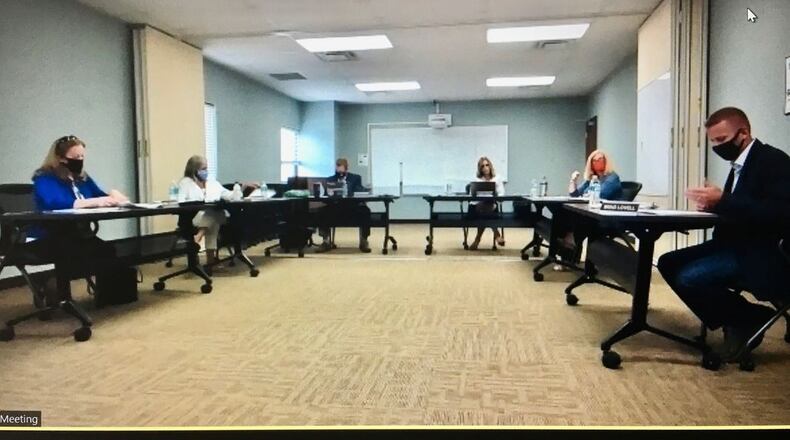The region’s largest school district, Cincinnati Public Schools, recently saw its school board accused of a lack of transparency in using electronic messaging among some members to deliberate over issues required to be discussed in a public forum.
Vanessa Wells is suing the Lakota Board of Education contending members are not following Ohio laws governing their public meetings and records from such gatherings.
“Our community deserves transparency from those who have been elected to these positions,” Wells told the Journal-News. “These are the people who are entrusted with our children’s lives, education, and a very large amount of the community’s tax dollars, so it’s even more important that they follow the rules and policies that are put into place to govern their own positions.”
Wells’ lawsuit claims the governing board of the 16,800-student district has been negligent in its legally required conduct of informing the public.
“I think I speak for a lot of community members and parents when I say, we have watched that happen during board meetings too many times and it’s a very large part of the problem,” said Wells, who last year removed her child from the district.
The four elected members of the school board — Brad Lovell, Kelley Casper, Julie Shaffer and Lynda O’Connor — along with 2020 appointee Michael Pearl did not respond to an email solicitation from the Journal-News seeking their comments, nor did Superintendent Matt Miller.
Rather, Lakota’s Spokeswoman Betsy Fuller replied, saying: “Our attorneys are currently reviewing the lawsuit against our school board, which is related to the details of the board’s meeting minutes.”
“It is always the intent of Lakota Schools to be transparent with the community in all matters. This includes providing full recordings of its public school board meetings. If it is found that the board has inadvertently made an error, as stated in the lawsuit, all necessary steps to correct it will be taken,” said Fuller.
In Wells’ lawsuit, among other allegations, she accuses the board of providing only sparsely described meeting minutes from a July gathering where members voted to pick one of a number of plans to return to classes during the coronavirus pandemic.
“When the (board) voted on this matter, they only recorded the roll call in their minutes,” the lawsuit states. “Even though (board) offered deliberations and expressed opinions on their votes, their meeting minutes fail to record an of the (board’s) rationale behind the (board’s) decision and votes.”
The filing also makes similar allegations regarding an August meeting pertaining the board’s discussion of replacing former member Todd Parnell, who resigned.
Wells was among the more than 50 candidates who applied for the open board seat and was given an interview by board members.
Parnell’s seat was eventually filled by Michael Pearl via an appointment vote by other board members.
The lawsuit also alleges the Lakota board does not publicly announce upcoming committee meetings nor provide minutes after those meetings are conducted.
Wells is seeking an invalidation of all previous board actions that involved the alleged non-adherence to Ohio public meeting laws and a reimbursement of her attorney fees and court costs.
The Cincinnati Enquirer recently reported members of Cincinnati Public Schools’ (CPS) governing board have been accused of circumventing Ohio law with email and text messages outside of its required public meetings.
“CPS’s lawyer says the board’s communications were perfectly legal. But three local lawyers, including one who represents The Enquirer, say the communications violated Ohio’s Open Meetings Act,” according to the newspaper.
Cincinnati Board of Education President Carolyn Jones cited the increase in critical questions and actions by the board forced on it by the coronavirus pandemic.
“This year has been a blur of new information and updates, and it seems like the board has been presented with (a) new critical decision every meeting. I truly believe our decisions were made in public. But this can also be an opportunity for us to be even more vigilant in the future,” according to the Enquirer’s story.
CONTINUING COVERAGE
The Journal-News is committed to following the actions of local elected officials. In this report, we gathered information on a lawsuit and reached out to the Lakota school board members for comment and explanation, then described what else is happening in the region in public meetings. We’ll continue to watch our local governments for what our readers should know.
About the Author

